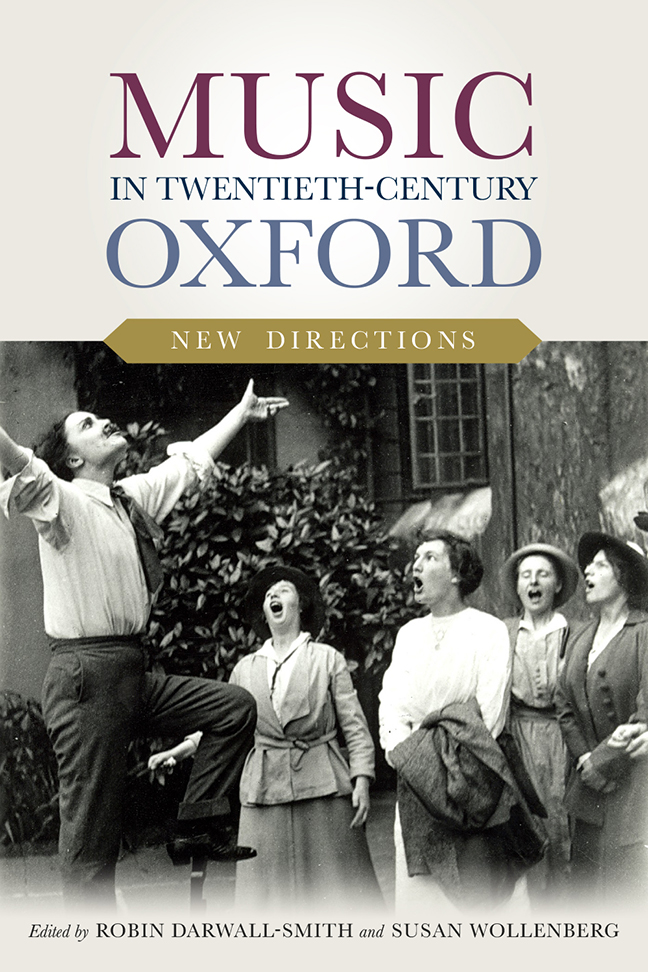10 - The Development of the Faculty of Music
Published online by Cambridge University Press: 09 January 2024
Summary
In the history of music's cultivation academically within the University, the twentieth century is remarkable for the substantial changes to the study and teaching of the subject that rescued it from its long-standing ‘Cinderella’ status. The new structures and their development that were put in train in the first few decades of the century laid the foundations for a Faculty of Music with a distinguished presence, both within Oxford and internationally. Presiding over the beginnings of that new Faculty, and appointed as Heather Professor of Music to succeed Hugh Allen following his death in 1946, was Sir Jack Westrup, attracted to Oxford from Birming-ham, where he had held the Chair of Music (see Figures 10.1 and 10.2).
Prior to the introduction of the Honour School of Music at Oxford in 1950, candidates for the B.Mus. and D.Mus. might acquire an Oxford degree in a subject other than music as resident students, as well as enter-ing for the historically non-resident music degrees at Oxford. This was the case with Jack Westrup, studying classics at Balliol College in the 1920s. The Oxford musical degrees might even be combined with undergradu-ate study at Cambridge. For example, Charles Kitson (B.Mus. Oxon 1897, D.Mus. 1902), Professor of Music at Dublin, and influential author of text-books on compositional techniques, was organ scholar at Selwyn College, Cambridge. And Hugh Allen ‘took his BMus examinations at Oxford in 1892, and in the same year was appointed organ scholar at Christ's Col-lege, Cambridge’. The move begun in the late 1890s to establish residential status for the Oxford music degrees was fraught with debate. Sir Frederick Bridge (an opponent of the change) recalled ‘the tremendous fight in which … I found myself involved – against some proposed alterations in the Statutes relating to musical degrees in the University of Oxford’. The proposed requirement that, he explained, ‘no candidate might proceed to a degree in music unless he had first taken the degree of Bachelor of Arts … would have entailed compulsory residence at the University for a period of three years, and would have meant that the musical profession was practically barred from taking the Oxford degree’. His objections reflected the standing of musical degree candidates, the majority of whom were in employment as church organists.
- Type
- Chapter
- Information
- Music in Twentieth-Century OxfordNew Directions, pp. 177 - 197Publisher: Boydell & BrewerPrint publication year: 2023

